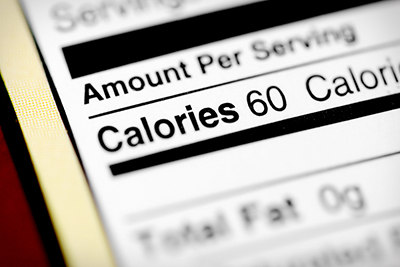
Source: www.volcomunity.com
Malaysia is a truly a heaven for food lovers. We probably have the most variety of food in the world with taste to be envied for by others. On top of that, our foods are always available no matter what time of the day it is. Because of this, it is no wonder that Malaysia is having among the highest percentage of obese people in the population. With increased obesity, come the inevitable statistical consequences of higher incidences of chronic illnesses such as diabetes and heart diseases. We eat, we get fat, we get sick and we die.
We Malaysians know how to eat and eat we do to our death!
Various studies have shown that the availability and affordability of food is directly correlated with emergence of chronic diseases and death. To live healthy and longer, eating less seems to be the answer. This is very well supported by scientific literatures. There is even a phrase to summarise the concept of eating less for a healthier and longer living. It is called ‘Calorie Restriction with Adequate Nutrition’ or CRAN for simplicity.
Experiments on animals have shown that calorie restriction with adequate nutrition (CRAN) improves health and prolong lifespan. Limited studies on human also have shown similar result. Observations made on the population who are naturally small-eaters indicate that by eating less, human tend to live healthier and longer. The traditional Japanese people who live on the island of Okinawa are the example of this. This community has been observed and studied many times and the conclusion has always been that their community has relatively higher percentage of healthy elderly people. The tradition of eating less seems to have rooted so deep in their culture, they even have a saying for it. It is called ‘hara hachi bu’ means eat only to stop hunger and not to get full (literal meaning is to eat only 80% full). We Malaysian probably have an opposite phrase that goes something like ‘eat while we can, for tomorrow we may die!’
Back to CRAN, on average CRAN extends the life expectancy of an animal by about one third. Not only does it increase average life expectancy, but CRAN also extend the maximum life span of a species. For example, the maximum life span of mice is about 3 years. Mice on CRAN however live up to 4 or 5 years old. That is an astonishing 40 to 60 percent increase in maximum life span. When translated to human age, this would be a life span of more than 160 years.
Not only CRAN extends life, it also retards ageing and onset of diseases. This means the extra years that CRAN adds to life are healthy and active years, not additional years of elderly frailty.
An experiment on eight human adults who were sealed into a biosphere laboratory in Arizona desert for a two years of a simulated life in a space colony was conducted in 1990s. They eventually had to resort be on CRAN diet and astonishingly shows remarkable improvement in health markers. In the research paper published afterward, it was noted that the biological changes in the subjects were similar to the changes seen in animals on CRAN.

Source: mispibo.com
Studies now have shown that CRAN in humans would involve reducing calories by 50 to 70 percent of the normal adult calorie intake (which should be around 2000 – 2500 kcal per day). This means CRAN advocate an intake of 1000 to 1750 kcal per day. Bear in mind our average roti canai is already 500 kcal and average nasi lemak is already 1000 kcal per day. Those foods are usually only for breakfast! Foods for lunch and dinner are usually twice or thrice of the amount taken for breakfast. Is it any wonder that we are ever ballooning and getting sicker every day?
However, with calories this low, nutritional value must be maintained. There is no room for empty calories such as junk and processed foods. Calories as low as this unfortunately will subject a person to a constant state of hunger. Therefore a high degree of discipline and motivation is needed to sustain such a lifestyle.
To put it all in a nutshell, to live healthier and longer, apparently all we need is to eat less and concentrate on nutritious food. Overeating and stuffing are apparently the root of all our diseases and short lives. It is probably written somewhere in our genetic codes a law that goes something like this; Eat and you shall die, faster! Starve and you shall live, longer!
This article was written by the Malaysian Medical Gazette’s permanent columnist Dr. Rizin H Kusop who is currently the proprietor and MO in charge of a group practice franchise in Sabah who has a special interest in Anti-ageing, Regenerative and Aesthetic medicine. Find out more about him at The Team page.
[This article belongs to The Malaysian Medical Gazette. Any republication (online or offline) without written permission from The Malaysian Medical Gazette is prohibited.]
References:
- Heilbronn, LK. Ravussin, E. Calorie restriction and aging: review of the literature and implications for studies in humans. American Journal of Clinical Nutrition. 2003; 78:361-369.
- Holloszy, JO. Fontana, L. Caloric restriction in humans. Experimental Gerontology. 2007; 42(8):709-712.
- Hill, JO. Peters, JC. Environmental contributions to obesity epidemic. Science. 1998; 280:1371-1374.
- Rampal, L et al. A national study on the prevalence of obesity among 16127 Malaysians. Asia Pacific Journal of Clinical Nutrition. 2007; 16(3):561-566.
